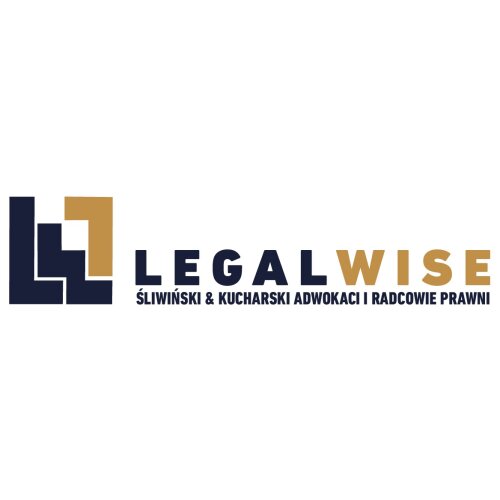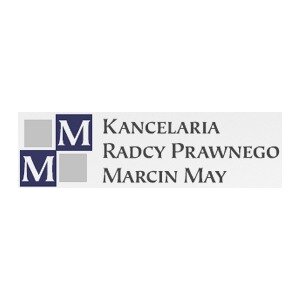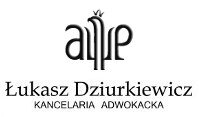Best Merger & Acquisition Lawyers in Poland
Share your needs with us, get contacted by law firms.
Free. Takes 2 min.
Or refine your search by selecting a city:
List of the best lawyers in Poland
About Merger & Acquisition Law in Poland
Merger and Acquisition (M&A) law in Poland covers the legal framework governing business combinations and transfer of corporate control. The Polish M&A market has been dynamic, driven by the country's robust economic growth and integration with the European Union. Transactions can range from smaller private deals to large, complex cross-border mergers involving multinational corporations. The legal framework for M&A in Poland is largely aligned with EU directives but includes local nuances that investors and companies must navigate carefully.
Why You May Need a Lawyer
Engaging in M&A transactions involves complexities that require specialized legal expertise. Common situations where legal assistance may be needed include:
- Conducting due diligence to assess legal, financial, and operational aspects of a target company.
- Negotiating and drafting transaction agreements such as share purchase agreements, asset purchase agreements, and merger plans.
- Ensuring compliance with Polish competition law and securing necessary approvals from regulatory bodies like the Office of Competition and Consumer Protection (UOKiK).
- Navigating tax implications and structuring the transaction to ensure tax efficiency.
- Resolving disputes that may arise during negotiations or post-transaction integration.
Local Laws Overview
M&A transactions in Poland are governed by several key legal provisions and institutions:
- The Commercial Companies Code, which regulates company formations, transformations, mergers, and acquisitions.
- The Act on Competition and Consumer Protection, which oversees antitrust reviews and is enforced by UOKiK.
- EU regulations, especially for cross-border M&A transactions within the European Union.
- Tax regulations stipulating the tax implications of M&A, including Capital Gains Tax and VAT.
- Securities law for public companies, mandating additional disclosures and procedures.
Frequently Asked Questions
What is the typical process for an M&A transaction in Poland?
The process generally involves preparation, due diligence, negotiating agreements, obtaining regulatory approvals, and closing the transaction. Each stage requires careful legal and financial considerations.
Do all M&A transactions require regulatory approval in Poland?
Not all transactions require approval, but those that meet certain thresholds or affect market competition will need to be reviewed by UOKiK.
What should be included in the due diligence process?
Due diligence should cover legal aspects, financial records, operational performance, human resources, intellectual property, and potential liabilities.
What are the tax implications of M&A transactions?
Tax implications vary depending on the transaction structure but generally include considerations for capital gains tax, VAT, and transfer pricing. Legal advice is essential for tax-efficient structuring.
How can we protect against potential liabilities in M&A deals?
Implementing robust warranties, indemnities, and representations in transaction documents can offer protection against unforeseen liabilities.
Are there specific challenges in cross-border M&A transactions?
Cross-border transactions face challenges such as differing legal systems, regulatory approvals in multiple jurisdictions, currency fluctuations, and cultural differences.
Can minority shareholders block a merger?
In certain scenarios, minority shareholders can influence the approval of a merger if prescribed thresholds are not met, hence their rights must be considered in the transaction structure.
What role do financial advisors play in M&A?
Financial advisors provide insights on valuation, market analysis, and assist in structuring deals to maximize value for all parties involved.
How important is corporate culture in M&A success?
Corporate culture plays a significant role in post-merger integration; alignment can lead to smooth transitions while a mismatch can cause significant challenges.
What are the key considerations for post-merger integration?
Successful post-merger integration steps include aligning business systems, harmonizing corporate cultures, and realizing synergies as planned in the initial transaction strategy.
Additional Resources
For further assistance with M&A transactions in Poland, consider reaching out to entities such as:
- Office of Competition and Consumer Protection (UOKiK) for antitrust inquiries.
- Polish Investment and Trade Agency for guidance on investment in Poland.
- Local chambers of commerce for networking and insights into the Polish market.
Next Steps
If you require legal assistance in navigating the complexities of M&A in Poland, consider the following steps:
- Engage with a law firm with robust experience in Polish M&A law.
- Consult with financial advisors and tax experts to evaluate the transaction structure.
- Prepare for thorough due diligence to gather comprehensive insights into the target company.
- Ensure that your transaction complies with all relevant local laws and regulatory requirements.
Initiating these steps with the correct professional advice will position you for a successful merger or acquisition journey in Poland.
Lawzana helps you find the best lawyers and law firms in Poland through a curated and pre-screened list of qualified legal professionals. Our platform offers rankings and detailed profiles of attorneys and law firms, allowing you to compare based on practice areas, including Merger & Acquisition, experience, and client feedback.
Each profile includes a description of the firm's areas of practice, client reviews, team members and partners, year of establishment, spoken languages, office locations, contact information, social media presence, and any published articles or resources. Most firms on our platform speak English and are experienced in both local and international legal matters.
Get a quote from top-rated law firms in Poland — quickly, securely, and without unnecessary hassle.
Disclaimer:
The information provided on this page is for general informational purposes only and does not constitute legal advice. While we strive to ensure the accuracy and relevance of the content, legal information may change over time, and interpretations of the law can vary. You should always consult with a qualified legal professional for advice specific to your situation.
We disclaim all liability for actions taken or not taken based on the content of this page. If you believe any information is incorrect or outdated, please contact us, and we will review and update it where appropriate.
Browse merger & acquisition law firms by city in Poland
Refine your search by selecting a city.















